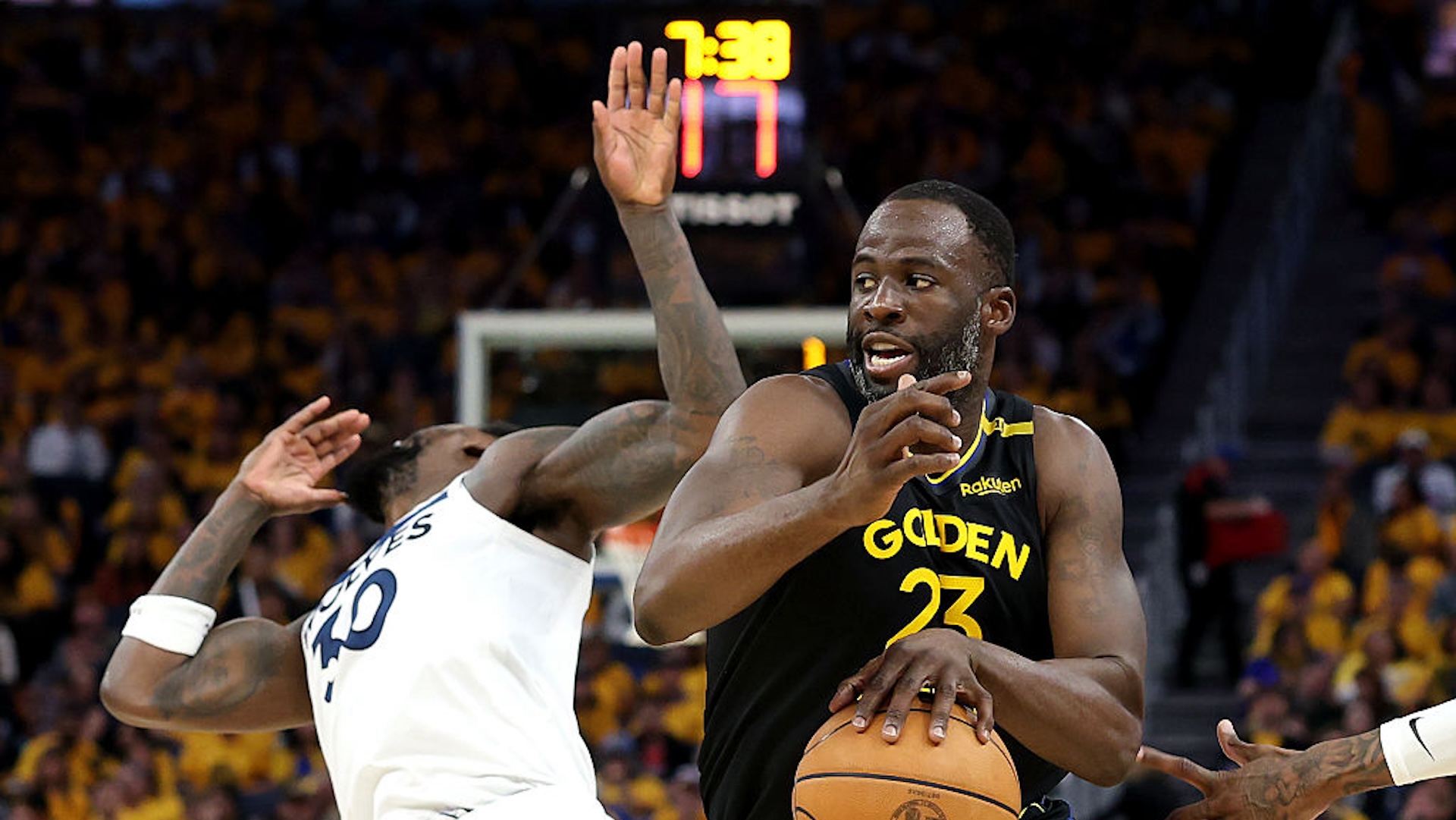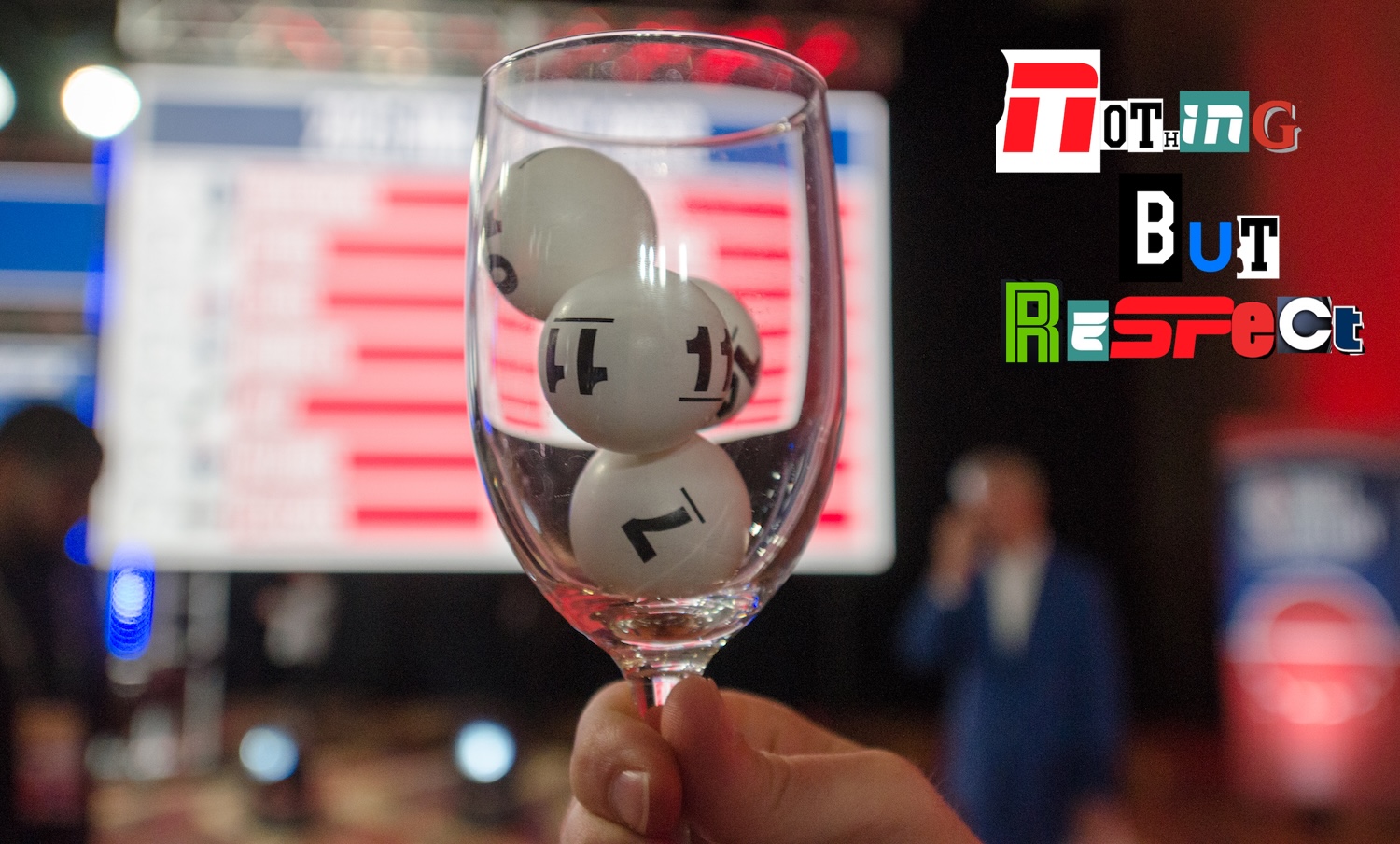SAN FRANCISCO —The NBA playoffs have been going for nearly a month, and everyone is suffering. Jayson Tatum awaits an MRI on a Monday night leg injury that may well have ended his playoffs and Boston's title repeat hopes; Damian Lillard's Bucks career ended with an Achilles tear; and Steph Curry is down with a strained hamstring. The headlining injuries hardly even tell the story. The eight teams still in contention look battered and out of gas: The Nuggets scored just eight points in a first quarter, the Celtics whimpered and died in two straight fourth quarters, and the ailing Cavaliers were just ground into a fine powder by the Pacers. Things are going to get worse, as we're not even halfway through the playoffs. It is hard to shake the feeling, especially after the Tatum injury, that the eventual champion will not necessarily be the best team but the least damaged. Which brings us to the word of the playoffs: physicality.
Throughout this NBA postseason, players and coaches cannot stop talking about physicality, and the necessity of meeting it. "I think the physicality was there," Magic coach Jamahl Mosley said after his team lost Game 2 against the Celtics. "I don't think they were dirty plays, but I think it passed a line of physicality," Cavs coach Kenny Atkinson said after his team lost Game 1 to the Pacers. "Our physicality was great tonight," Jaylen Brown said after taking a 3-1 lead against the Magic. "If you look around the playoffs right now, it’s super physical," Timberwolves coach Chris Finch said in the first round of his team's series against the Lakers. "To me, they’ve gone way too far on the physicality. [...] It feels like it’s physicality without purpose." After his team lost Game 3 against the Clippers, Nuggets coach David Adelman provided the diagnosis: "Defensively, we have to meet their physicality."
Why is everyone yammering about this? What does it mean exactly to meet physicality? I went to Game 4 of Wolves–Warriors to find out.
On one hand, the collective point here is so simple as to be almost banal. Basketball is a contact sport, and you're likelier to lose if you get pushed around and beaten up. The playoffs are a more intense competitive environment than the regular season; even before you take officiating into account, it stands to reason that the game's brutality would scale up along with its competitive ferocity.
On the other hand, "physicality" is an oddly slippery word to pin down in this context. The concept makes a good deal of intuitive sense, but it's almost too modular, referring alternately to fouling, boxing out, running, fighting, the angle at which you contest shots, or some combination thereof. I'd argue its inscrutability hints at something deeper in the competitive structure of basketball. In every complaint about physicality and every reminder of the necessity of meeting that physicality, there is a subliminal acknowledgment of basketball mortality.
That is buried within, of course, an appeal to the league's officiating corps. No matter where the line of acceptability is drawn, officials inarguably let players get away with more in the playoffs, and so each foul they do call matters more. As John Hollinger recently wrote, fouls and free throws are both up from the regular season, though it would be a mistake to conclude from those data that the games are being called tighter. The key is that players are trying to get away with more. If you watch, say, the Thunder, you see a team that exerts constant defensive pressure off the ball by harrying and holding opponents before they start running (Lu Dort in particular likes to use his knees as melee weapons when people screen him). Pay attention to Golden State's Kevon Looney for a quarter, and you'll see a master of pushing guys in the lower back a half-beat before the referees shift their gaze under the basket. An important part of a coach's job in the playoffs is mounting a public-relations campaign on behalf of their players, against the officials.
Take Warriors–Wolves, for example. The officiating corps' unwillingness or inability to control Game 1 allowed the teams to beat the crap out of each other, leaving both coaches bitter and Curry's hamstring dangling by its sinews. Gary Payton II's mostly ineffective plan for containing Anthony Edwards is to hold his jersey and push him or grab him with one hand when he thinks the officials aren't looking. "They do a lot of fouling, shoving, holding, pushing, and tackling Rudy [Gobert]," Finch said. "That's clear. We sent a bunch of those clips into the league."
"I think they could have called a foul on six or seven straight possessions with them guarding Steph," Warriors coach Steve Kerr responded. "I've got my complaints, too. Trust me. We all do. This is how it works in the playoffs."
I asked both coaches about the series' physicality after the Wolves' narrow Game 3 win. Surprisingly, they agreed: Game 3 represented the ideal level of physicality. What did that look like in practical terms? "Body-on-body," Finch said, somewhat unhelpfully, before defining it in the negative. "It wasn't blatant fouls that they chose not to call. If you don't match physicality or exceed physicality, you're just gonna get rolled over. That's how it goes this time of year."
To that point: I talked to a scout before Game 4 who said they were there specifically to see how players would respond to the pressure of playoff basketball, an environment where a player's every flaw is magnified and exposed for all to see. Lose a playoff game, and you are zero to three more losses away from a Cancun vacation and a summer of people calling you a bum. Miss a single defensive rotation, and you might not touch the floor for the rest of the series. Several coaches and players have put the difference in fairly stark terms, adopting the line that playoff and regular-season basketball are different sports. That's true in the sense that the hand-to-hand combat is different. In regular-season games, players don't blast through screens in the same way, box out with the same ferocity, or contest shots as fiercely at the rim. In the playoffs, space is won at greater cost.
Flagrant fouls and injuries get a ton of attention, but those are contingent, while the attritional damage of simply playing at playoff intensity is wholly unavoidable. To step onto the floor in the playoffs is to accept the risk, and sacrifice some of your basketball future for the present. That's what meeting someone's physicality means: agreeing to that exchange on the same terms. If one team's players put their bodies on the line and their opponents don't, the former will win. The clearest sign that the Warriors were punting Game 5 of the Rockets series was their refusal to attack the paint, plainly unwilling to pay the price that playoff basketball requires.
Just as the story of any species' evolution is also the story of the evolution of its parasites, the specific nature of how players are getting popped has changed along with the game. Whereas the action in earlier basketball eras tended to gather around more or less stationary giants in the low post, modern defense can be conceived of as a series of imperfect solutions to the problem of teams being able to fire off as many three-pointers as they can without too much issue. Without that steady diet of interior players to clobber, defenses have had to seek margins elsewhere: full court pressure on ball-handlers, grabbing off-ball cutters, and elbow shivs on big men who turn their backs to the basket.
These playoffs have shown that when those dark arts are applied with a higher level of intensity and focus, they tend to eliminate an opponent's prettiest stuff. What is left? In the Wolves' case, Julius Randle putting his shoulder into someone and turning an 18-foot shot into an eight-foot shot, as he did throughout the first half of Game 4 without resistance.
Brute force is eternal, and while the new stuff is interesting—playoff offensive efficiency has declined from regular-season rates for three seasons in a row, which defies earlier trends—when I think about playoff physicality, I find myself thinking less about screen angles and more about the impermanence of good knees. Professional basketball is a meat grinder that turns the world's most athletic 20-year-old millionaires into some of the world's most hobbled 40-year-old centimillionaires. The process is beautiful, but the result is unavoidable. As Henry Abbott wrote in his recent book, Ballistic, "One expert casually told me that the NBA has a 100-percent injury rate."
The playoffs' increasing physicality accelerates the rate of decay. There's an almost mythic cycle at play here: Winning enough to be remembered requires you to risk more of your future. Each successive playoff win makes the next game played at the same intensity more difficult, more costly. Which brings us back to the idea that whoever survives to win the title could be the least damaged team, rather than the best. I'd posit that's a distinction without a difference. Luck obviously plays a huge role here, but resistance to the slings and arrows of the playoffs reflects skills, both in the sense that ending series and games quickly will earn you more rest along the way and in the sense that building a team of rugged, oversized guys like the Nuggets or the Knicks will simplify the challenge of meeting your opponents' physicality—and make it harder for them to meet yours.
Warriors–Wolves, then, is an ideal series through which to consider the matter of physicality. It's a series between two teams on opposite ends of their basketball lives. Physicality is Steph Curry, Jimmy Butler, and Draymond Green fighting against the limits of the human body, knowing the cost of a real playoff run, but being unable to pay any longer. Physicality is Anthony Edwards dancing with the easy fluidity of someone whose joints are all intact and packed with cartilage, and learning how to use his grace to extract pain from those who've broken their bodies on many a Finals run. Physicality is the delta between knowing how to fight and being able to fight. It is eternal, but not free.






